Muscle Memory: Is Trump about to light the Middle East on fire?
📡 The IRA (that’s the Irish Republican Army) used to have a motto for their war on the British Crown, summed up in three words: Escalate, Escalate, Escalate.
For Trump with Iran, it’s still three words, but not quite the same: Escalate to De-escalate.
Over the past two weeks, the US has quietly (and not so quietly) stacked up stealth bombers, carriers, refueling tankers, and warplanes across the Indian Ocean and the Red Sea. If you’re thinking, ‘This looks like pre-invasion Iraq circa 2003 but with better PR’, you’re not wrong.
🎯 The targets? Iran’s nuclear program and its proxies, especially the increasingly scorched Houthi rebels in Yemen.
Let’s break this down—what’s happening, where, why it matters, and whether Trump is bluffing or really ready to start a new war in the Middle East. But before, a small recap on the Iran nuclear deal (also called JCPOA):
Trump ditched the JCPOA in 2018 because he saw it as a “disaster deal” that gave Iran sanctions relief without permanently stopping its nuclear ambitions. He believed the sunset clauses let Iran legally go nuclear in a few years (15 to be precise).
The deal didn’t cover Iran’s missile program or regional meddling, which hawks called a huge blind spot. Politically, Trump wanted to erase Obama’s foreign policy legacy—and this was the crown jewel.
⚠️ Trump’s Ultimatum: Make a Deal or Get Bombed
💬 In early March 2025, President Trump reportedly sent a message ( “a very beautiful letter” as Trump called it) to Iran’s Supreme Leader Ali Khamenei. It came hand-delivered via the UAE—not exactly the Peace Corps—and the message was blunt: cut a new nuclear deal in two months, or we start dropping bunker busters. Or, in Trump’s own words to NBC: ‘bombing the likes of which they have never seen before’.
Subtle, he is not.
Behind closed doors, the White House insists it prefers a deal. Trump even told the emissaries, ‘I’d rather do peace. But the other option will solve the problem’ (Hint: It won’t)
Since then, the clock has ticked. Iran spent three weeks trying to figure out if this was a bluff, a trap, or both. Meanwhile, the US turned the heat way up:
Signalgate-style airstrikes obliterated the Houthis’ last credible drone bases in Yemen.
The US slapped sanctions on Chinese refineries importing Iranian crude, including one of those infamous ‘teapot’ plants in Shandong.
And, of course, those B-2s landed in Diego Garcia, with enough firepower to end a regime in days.
A senior US official described this deployment as ‘not unrelated’ to Trump’s message. No kidding. So that brings us to:
🛫 The Diego Garcia Flex: When You Want to Scare Iran Without Using Qatar
🚩 The US has dozens of military bases across the Middle East—in Qatar, Bahrain, Kuwait, Iraq, and the UAE — but many are within range of Iranian missiles, drones, or political backlash.
Enter: Diego Garcia. It’s a British-owned atoll in the middle of nowhere (technically the Indian Ocean), but it’s always been America’s ‘break in case of Middle East meltdown’ base. Think: launching point for Iraq, Afghanistan, and now… maybe Iran.
In the last week of March:
Six B-2 Spirit stealth bombers showed up—the kind that don’t show up on radar but do show up in nightmares. FYI, the US owns only 19 of these bombers. So that shows you the extent of the escalation.
They were joined by eleven KC-135 refueling tankers, C-17s, and who knows how many ‘bunker-buster’ bombs.
Missile defence systems (Patriot and THAAD) moved from South Korea to the Middle East
These planes can fly 6,000+ nautical miles, refuel midair, and drop 30,000-pound penetrators on underground nuclear sites.
Translation: If the US decides to hit Iran’s nuclear program, this is where the birds fly from. And crucially, Diego Garcia is out of Iranian missile range, unlike US bases in the Gulf—no awkward apologies to the Emiratis required.
🦅 Trump’s “maximum pressure” playbook is back in print. The logic is vintage Washington: Iran is behind the Houthis, the missiles, the drones, the drama. So, the US turns up the heat—flatten the proxy, threaten the patron. And the buildup? It’s working overtime to send a signal: You’re next, unless you sign.
Trump, mid-flight on Air Force One, told reporters what the Pentagon’s flight logs already made obvious:
“We’ll see if we can get something done. And if not, it’s going to be a bad situation.”
The previously mentioned aircraft are in place to take out Iran’s deeply buried nuclear sites, and fast. Iran’s key nuclear facilities like Natanz and Fordow are buried deep underground—in some cases beneath mountains — specifically to survive airstrikes.
🇮🇷 Iranian state media noticed. And for once, they’re not exaggerating: the B-2s at Diego are a red line in the sand—or sea. They could be over Natanz or Fordow in hours, undetected, unleashing 30,000-lb bombs from the sky.
The setup is textbook:
Diego Garcia is out of Iran’s missile range (3,000+ km of ocean = perfect buffer).
It’s immune to drone swarms.
It’s loaded with tankers for extended ops and C-17s hauling "special cargo."
And the bombers? Already practiced this last October, when one B-2 strike out of Australia took out Houthi bunkers.
The message? Crystal clear: This isn’t a drill.
Iranian hardliners are taking it seriously—maybe too seriously. By March 31, Tehran’s top commanders were reportedly floating a preemptive strike on Diego Garcia itself. Not metaphorically. Literally.
“Strike it before they strike us,” one IRGC general reportedly told his peers.
They even considered lobbing a cruise missile near the island just to make a point. The fact that this is even being discussed tells you everything you need to know about how loud the Diego deployment is ringing in Tehran’s ears.
Strategically, the US couldn’t have picked a better pressure point. This isn’t just a military flex, it’s coercive diplomacy on a very real fuse.
Trump’s team says they want a “verified nuclear peace agreement.”
Translation: No Obama-style handshake. Something tougher. Faster. Trumpier.
🤫 Perim Island: The Airstrip Nobody Admits to Owning
🇦🇪 Meanwhile, halfway between Africa and the Arabian Peninsula, another speck of dirt is suddenly interesting: Perim Island (Mayun) in the Bab el-Mandeb Strait, one of the most strategic maritime chokepoints in the world.
This tiny volcanic island now has a brand new 1.8-mile airstrip, fully paved, runway numbers painted and conveniently close enough to bomb Yemeni coastline targets with zero commute.
Who built it? The UAE, obviously.
Who’s using it? Officially, no one.
Unofficially: everyone in the anti-Iran coalition.
The US hasn’t admitted anything, but watch this space, in the next phase, expect drones, ISR (Intelligence, Surveillance, and Reconnaissance) aircraft, maybe even special ops shenanigans.
⌛ Iran’s Response: Strategic Silence and Quiet Retrenchment
🌐 On March 27, Iran sent back a formal reply through Oman, its go-to intermediary. The message? No direct talks while ‘maximum pressure’ is on—but they’re not slamming the door entirely.
President Masoud Pezeshkian (a reformist, sort of) said Iran wouldn’t cave to Trump’s timeline, but Tehran might be open to indirect channels.
Meanwhile, the IRGC:
Withdrew its military advisors from Yemen: Now, faced with unrelenting US bombardment, Iran is essentially abandoning its Yemeni proxy to preserve larger interests. “The view here is that the Houthis will not be able to survive… so there is no point in keeping them on our list,” said one Iranian regime insider, describing a sense in Tehran that the Houthis may be facing defeat
Prepared for a potential closing of their airspace, according to Mehr, Iran’s government news agency
Dispersed missile units, prepped for retaliation.
And reportedly debated preemptively striking Diego Garcia, just to make a point.
Even Khamenei weighed in, warning that any "mischief" would be met with a "strong reciprocal blow."In plain English: They don’t want war. But they’re not going to roll over either.
⚛️ The Enrichment Elephant in the Room
☢️ Here’s the real reason all of this matters: Iran is inches from becoming a nuclear threshold state. A lot have been said in recent years about Iran nuclear capabilities.
Right now, they have:
Enough 60% enriched uranium to build six bombs if pushed to 90%.
The capacity to go nuclear in 6 months or less.
Europe has said: stop the enrichment or we snap back UN sanctions. Iran has said: snap back and we’ll walk from the NPT (Nuclear Non-Proliferation Treaty).
Which sounds eerily like North Korea in 2003—and we all know how that turned out.
🇪🇺 My take? Europe’s not interested in another war, especially not against a mountain-ringed fortress like Iran. Outside the UK, most European capitals are quietly hoping Iran backs down just enough to open the doors to trade, not regime collapse.
It’s the US (and let’s be honest, Israel whispering in Washington’s ear) that wants Tehran on its knees, not just at the table.
Let’s not forget: Europe and Persia go way back. Before Iran was a geopolitical headache, it was a civilizational heavyweight—the kind of place European monarchs traded letters with, not drone strikes. France inked diplomatic ties with Persia in the 1600s, the Germans helped build Iran’s railways, and even Mussolini-era Italy backed Iranian modernization.
To many Europeans, Iran isn’t just another ‘Axis of Evil’—it’s an ancient civilization, an untapped market, and a cultural partner with oil, brains, and 88 million consumers.
🤝 The Deal No One Wants to Admit They Want
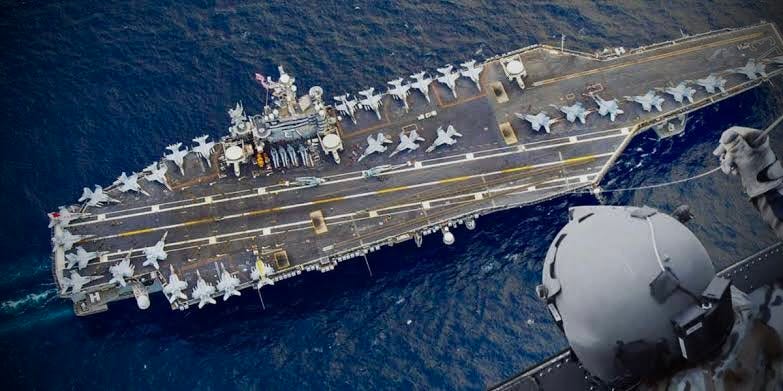
⚔️ Both sides want to avoid war. Trump has MAGA isolationists on one side and Rubio-style hawks on the other. His Vice President, JD Vance, is already warning that war could spike oil prices and distract from domestic wins.
Iran, meanwhile, is broke, cornered, and fresh out of proxies. Hamas? Besieged. Hezbollah? Battered. Assad? Nonexistant.
Neither side wants this fight. But neither wants to look weak. The US under Trump is fueled by ego; Iran, by centuries-old pride. That’s not a diplomatic setup, it’s a collision course. Which brings us to...
The best-case scenario? A ‘less for less’ handshake:
Iran freezes 60% enrichment.
Stops shipping advanced toys to the Houthis.
Tells militias in Iraq to chill.
Trump gets to claim he forced Iran back to the table. Iran gets to avoid snapback sanctions and B-2 bombers.
No relief, no grand bargain. Just kicking the nuclear ball down the road a few more months. But even that might be too much. Iran's nuclear program is its only real leverage now. Giving up parts of it would be painful. But then again, so is getting bombed.
Remember, the only thing the Iranian regime is interested in is self-preservation. Ayatollah Khomeini had famously quipped, that the principles of Islam may be set-aside to ensure the preservation and survival of Wilayat al-Faqih, the Islamic Regime. Quite a thing to say for a religious leader….
🌍 Everyone Else: Watching the House Burn, Holding a Fire Extinguisher
🇸🇦 Saudi Arabia: Which shares both a rivalry and a wary détente with Iran, has been walking a fine line. Publicly urging restraint, privately happy the Houthis are being taught a lesson—just not too loud.
🇦🇪 UAE: Built the damn airstrip and quietly loving this. They want the Red Sea cleared but aren’t putting their flag on it.
🇶🇦 🇴🇲 Qatar & Oman: Screaming ‘diplomacy!’ from the sidelines while hosting both the US and Iran for backchannel talks.
🇨🇳 China: Pretending to mediate, but mostly praying oil prices don’t spike. Also reminding the world this all started when Trump ditched the JCPOA. (they’re not wrong)
🇷🇺 Russia: Offering to host peace talks while casually letting everyone know they’re still selling drones and missile tech to Iran and, from recent reports, to the Houthis as well. Gotta hand it to the Russians; they sure know how to play all sides while claiming to be working for world peace, with a straight face no less.
🇫🇷 France: Sent its aircraft carrier to the Red Sea near Djibouti, shot down a few drones, and keeps reminding everyone that they, too, have nukes and ballistic baguettes. The French government also warned that if the US and Iran were unable to quickly reach a new agreement with Iran over its nuclear programme then a military confrontation seemed ‘almost inevitable’
🇺🇳 The UN: Still writing statements. Bless them…
💥 The War They’ve Always Wanted
🇺🇸 Sometimes, the best strategy in a negotiation is convincing the other side that you’re crazy. It may look like brinkmanship. It may not. But don’t mistake movement for madness. This is how pressure works.
If there’s one war Republicans have consistently dreamed about—across decades, across presidencies, across oil crises and missile tests—it’s Iran.
This isn’t like Iraq or Afghanistan or Libya or Syria. Those were wars of opportunity.
Iran is the war of obsession.
For Iran, you can trace the animosity back to 1953, when the CIA toppled Iran’s democratically elected prime minister Mohammad Mossadegh for nationalizing oil (spoiler: the British were pissed). And Iran hasn’t forgotten. The regime still calls the US ‘The Great Satan’—not because of pop culture, but because Washington helped install a monarch who ruled by torture for 25 years and subsequently armed and funded Saddam Hussein’s Iraq (a madman, basically) in his war against Iran.
The US, meanwhile, traces its rage to 1979—the Islamic Revolution and the hostage crisis, when 52 American diplomats were held in Tehran for 444 days (which arguably cost President Carter the 1980 presidential election). A national humiliation moment for the US, that has left its mark across generations.
So yes, this isn’t so much about uranium or proxies or Houthis. It’s about unfinished Cold War beef. And some Republicans have spent four decades waiting to finish it.
But here’s the kicker: Trump isn’t exactly that Republican. He’s not a Dick Cheney, a John McCain, or a Donald Rumsfeld. His version of ‘maximum pressure’ is more like ‘maximum threat, minimum follow-through.’ It’s about leverage, not liberation. Chaos, not boots on the ground.
And he knows what the Pentagon knows—and what most people don’t want to say out loud: Invading Iran could be devastating for the region with far greater regional ramifications and consequences than the war in Iraq.
🇮🇷 This is a country of 88 million people, protected by impassable mountain ranges, with battle-hardened militias, asymmetric warfare experience, a deep bench of ballistic missiles and more importantly, a national pride that surpasses most countries. Iran (or Persia) is a civilization that spans 3,000 years.
The last time the US war-gamed a full ground invasion of Iran, it came back with this little math problem:
500,000 troops needed minimum
$2 trillion in costs
And a guaranteed regional wildfire from Lebanon to Bahrain to the Straits of Hormuz.
That’s assuming everything goes well. Also: NATO would pass. Hard. Germany, France, the UK? Not a chance.
A reminder: Even with a coalition with Europe, Australia, Japan and South Korea contributing troops, there still wasn’t enough manpower to protect weapons depot or rebuild Iraq. Hence why it was so easy for ISIS to arise.
Iraq has a fraction of the population of Iran. Moreover, Iran borders hostile (to the US) powers such as Taliban-led Afghanistan and Pakistan. No-one outside Europe can provide this manpower. Possibly Turkey, but they will never be seen in a war alongside Israel.
The only guaranteed enthusiastic supporter? Israel, whose Prime Minister Benjamin Netanyahu has been not-so-subtly lobbying the US toward this fight for 20+ years. Check the video below 👇 (and if you think you’ve got it wrong in geopolitical analysis, look no further than Benjamin Netanyahu)
Unfortunately, regime change is the easy part (but not the moral one). Regime stability is the nightmare. Ask Baghdad. Ask Kabul. Ask Tripoli.
Iran isn't a collapsing dictatorship. It's a hardened, paranoid, semi-theocratic regional power with global partnerships, missile factories, and centuries of empire-building in its DNA. So the question isn't whether the US can beat Iran. It absolutely can.
The questions are: What happens after? and What does “America First” really mean if it’s just to launch yet another Middle East war?
Because once the dust settles and the regime falls, all that's left is an angry, fragmented, heavily armed nation of millions of people and a regional map set ablaze.
And no bunker-buster in Diego Garcia is going to fix that.






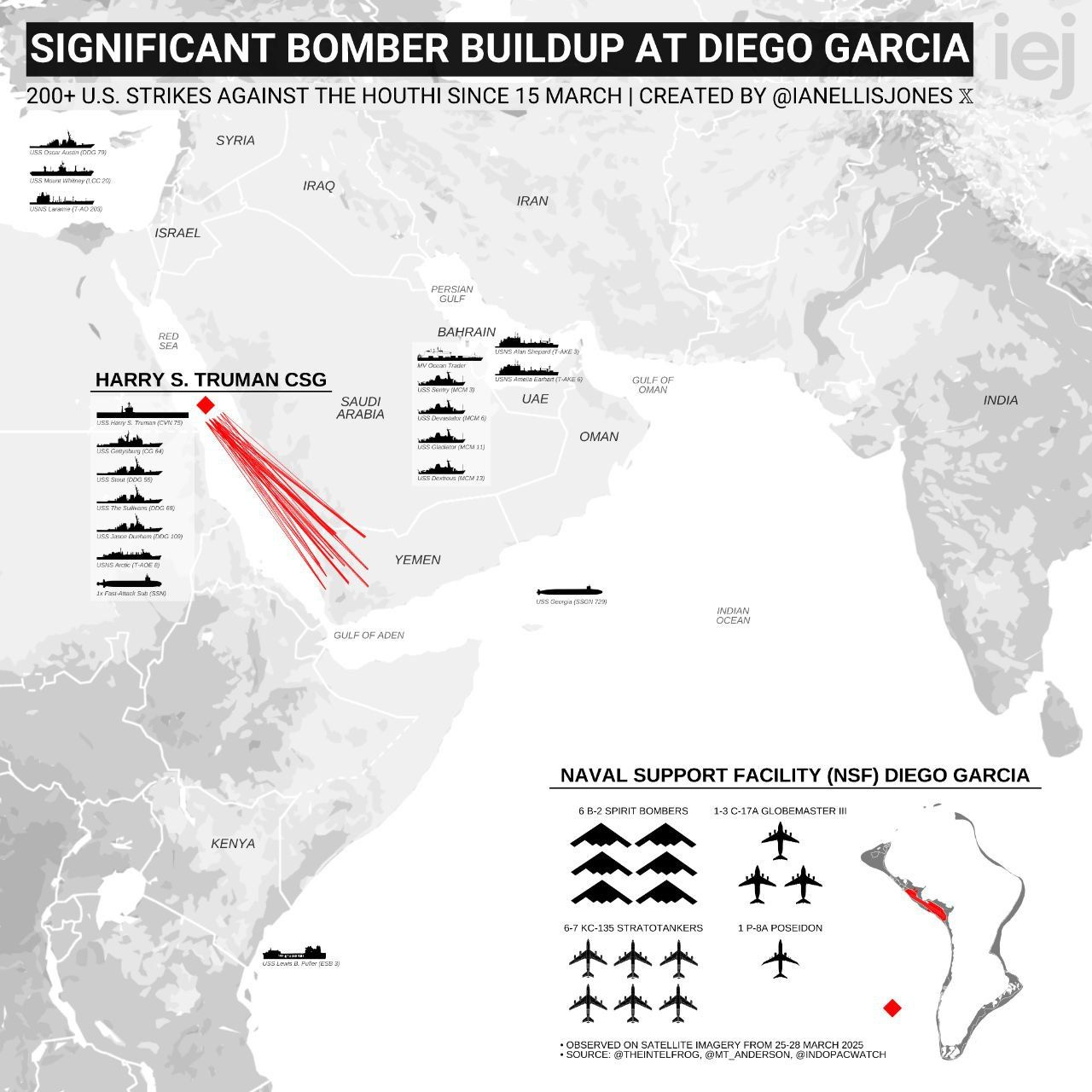

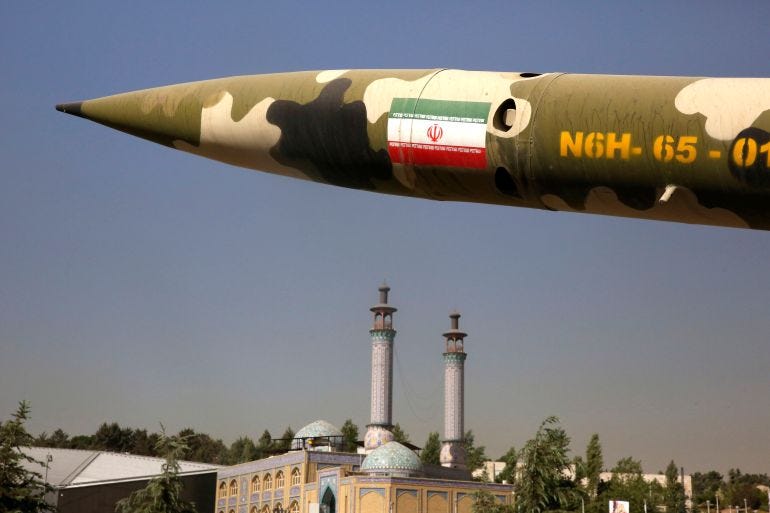
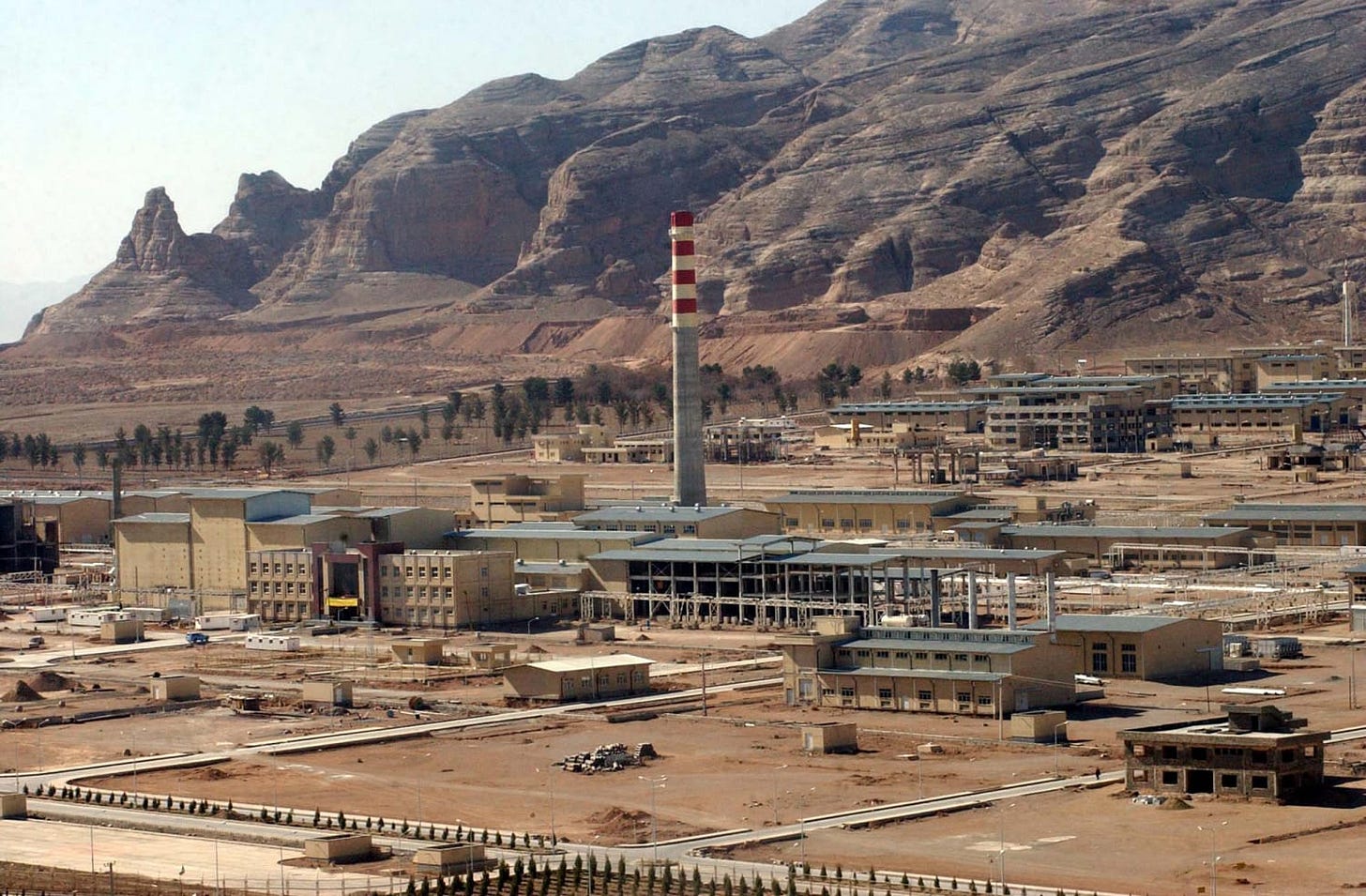
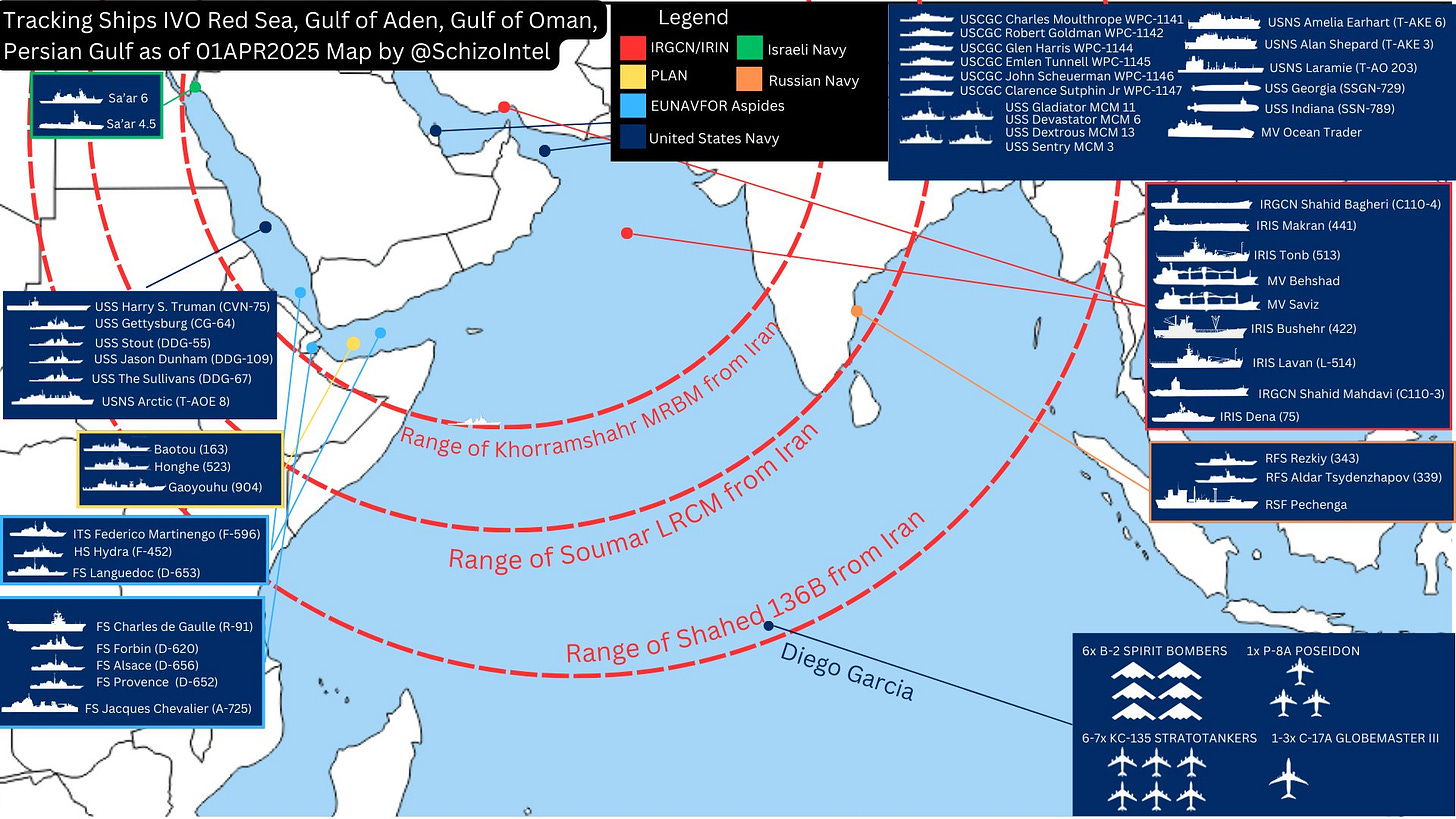
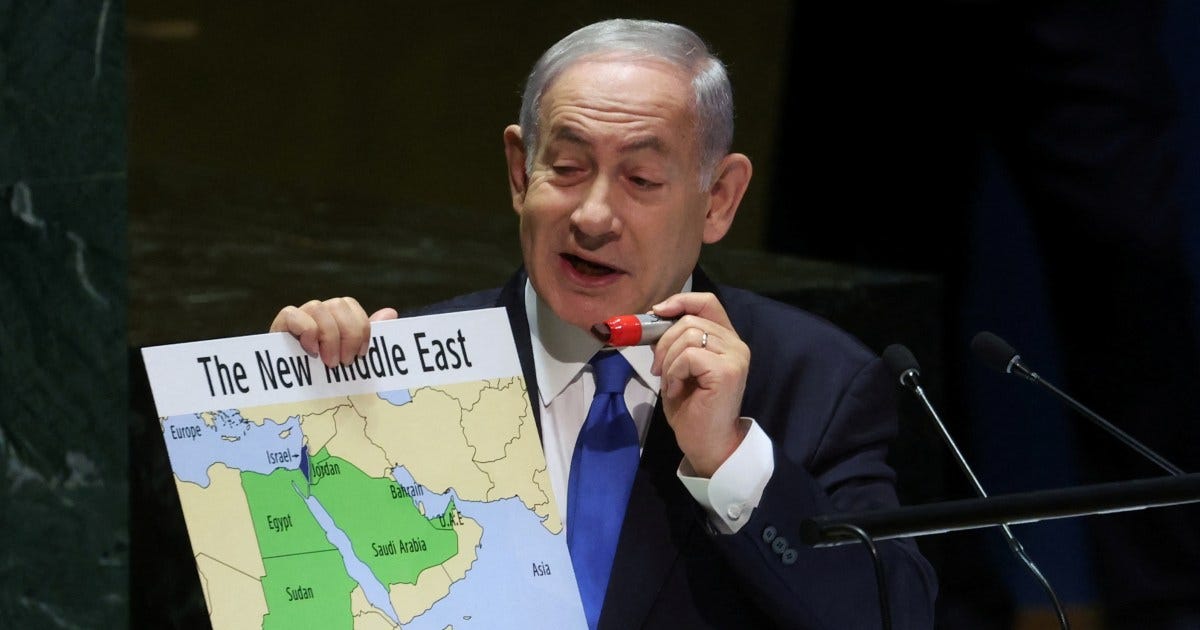
Excellent read—kudos on the clarity and precision. It’s rare to find military analysis that’s both accessible and insightful. I think my readers would really benefit from your perspective—would you mind if I referenced your post in my weekly newsletter?
A truly outstanding read of what's happening, with clear and precise details. I really liked the sequence and the strategy you followed in your writing. Thank you!